15 Ways to Motivate Teens to Practice the Piano Most Effectively
Learning to play the piano not only helps kids develop musical talents, but it also promotes brain growth and concentration. However, learning to play the piano is not always an easy task for children.
You have chosen a great piano, hired an excellent piano teacher, and purchased numerous books to help your child learn to play the piano. However, one element is still missing: incentive for your child to practice consistently. Although your child enjoys playing the piano, he or she does not want to sit down and practice every day. Let’s find out 15 ways to motivate teens to practice the piano.
See More :
- 10 Tips for Correct Piano Posture For Everyone
- Top Piano Notes Sheet for Beginners
- Top 10 Best Pianos for Beginners
- How Can I Play Piano?
- What is a Spinet Piano?
#01 – First way to motivate? Let’s Purchase a Piano.
If there isn’t a piano at home for your child to practice on, mastering the instrument will be quite challenging. If you want your child to study the piano, therefore, you should make purchasing a piano your first priority. Ideally, you should get a high-quality acoustic piano, sometimes known as a classical piano. The greatest kind of piano for your child’s musical sensibilities is this one. However, families with small spaces or homes can also make a good case for electric pianos.
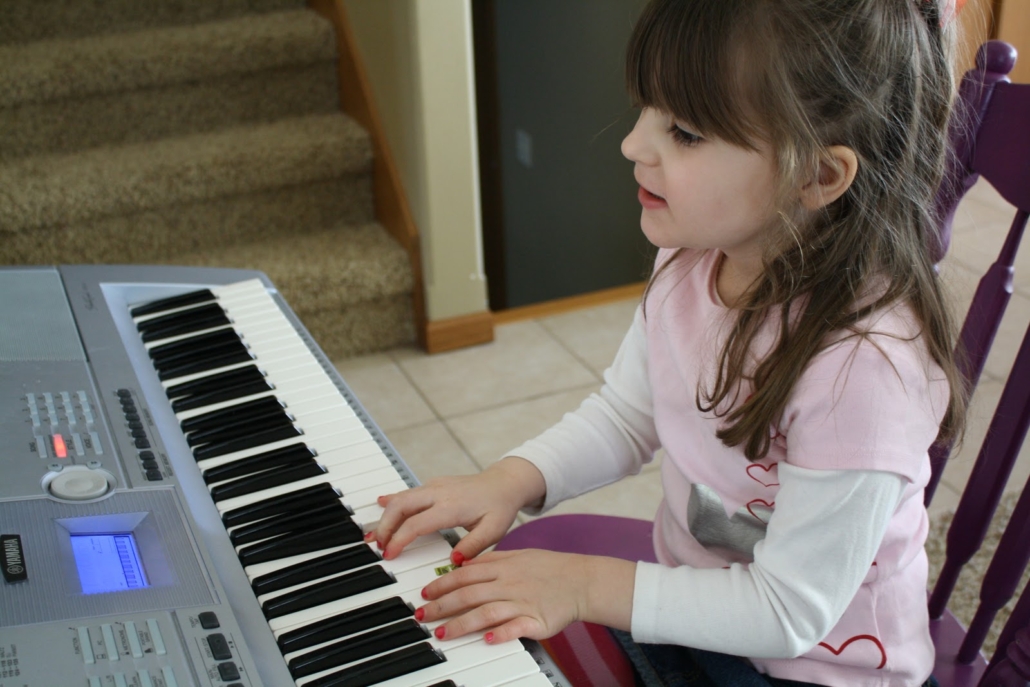
#02 – Place the piano in the center of the house and away from the TV.
The piano’s location in a quiet corner, where kids can quickly get bored, and the piano’s proximity to the TV, which interferes with their ability to concentrate, are the two main reasons why kids lose focus when practicing the piano. By hiding the piano in a secret area of the house, you are essentially telling your child that it is insignificant and that it is acceptable to disregard it. Additionally, putting the piano too close to the TV might lead to audio conflicts that are uncomfortable for all.
#03 – Buy a Height Adjustable Stool
A key component of enjoying and comforting piano playing is sitting at the proper height. An incorrect seating position might make it difficult for your kids to play.
#04 – Encourage your child to play with the piano before starting lessons
Playing with the piano won’t break it; instead, your kids will get accustomed to how the keys work and how they make different sounds and effects. In addition to saving a ton of time during the first few weeks of instruction, your child will have the courage to do new things from the very beginning.
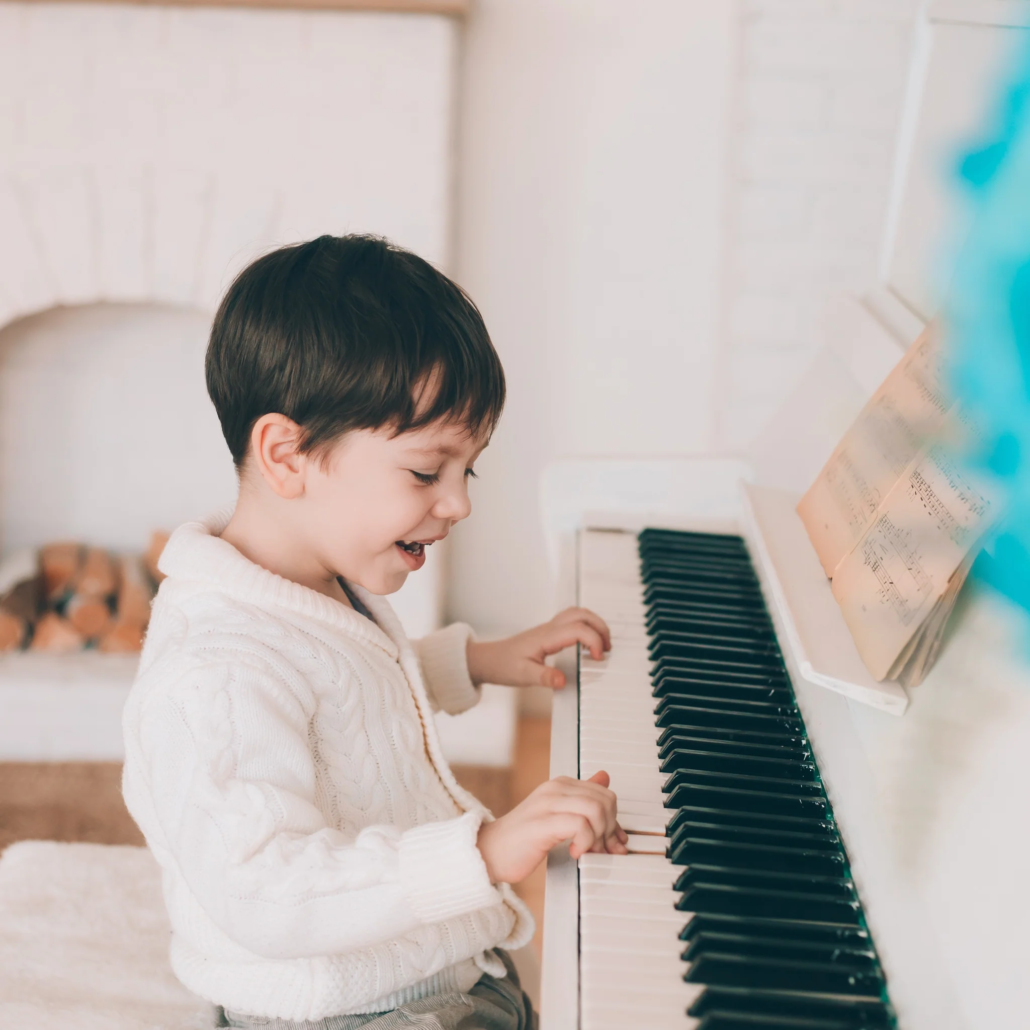
#05 – Set realistic goals for your kids
One of the most crucial things is to make sure that your child enjoys practicing the piano by setting achievable goals. For example, a 6-year-old can normally only concentrate for around 10 minutes at a time. They can grow weary and lose interest if you have them practice for prolonged periods of time. It is advised to take one day off per week at a slightly older age.
You should discuss these objectives with your child’s piano instructor to ensure that everyone is on the same page and that adjustments can be made as needed.
In addition to giving your child a clear direction, you can help them feel encouraged and realize that they don’t have to be flawless right away by having a conversation with them about expectations and setting reasonable ones.
#06 – Establish a regular exercise routine for your child.
Make sure your youngster has a set practice routine every day in order to facilitate their approach to learning the piano. Learning to play the piano will become second nature once the habit is formed, much like when you develop the habit of eating or sleeping on time.
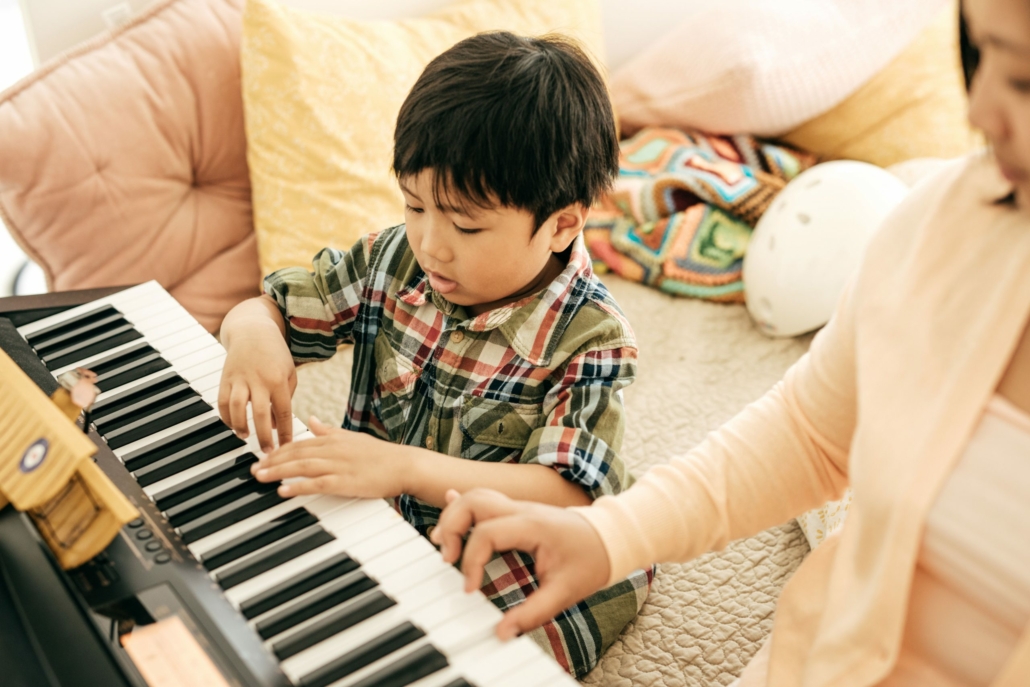
Since your child is still sensitive and may easily transition to other activities, you can designate the time after school as the primary practice period for them. You might think about scheduling practice before or after supper, though, as some kids require time to unwind after school.
Make sure that practice sessions for young children don’t last too long; this will prevent fatigue and boredom. An hour of dull practice will not yield the same results as a focused, 10- to 15-minute practice session.
The most crucial thing is to adapt your approach to your child’s needs and personality with patience and flexibility.
#07 – Praise your kids
Positive reinforcement is one of the best strategies to keep your child’s attention and help them make progress in their piano lessons. Youngsters take favorably to praise. Engage your child in practice with enthusiasm and energy, and refrain from correcting or criticizing too much as this can cause bad experiences and a fear of making mistakes.
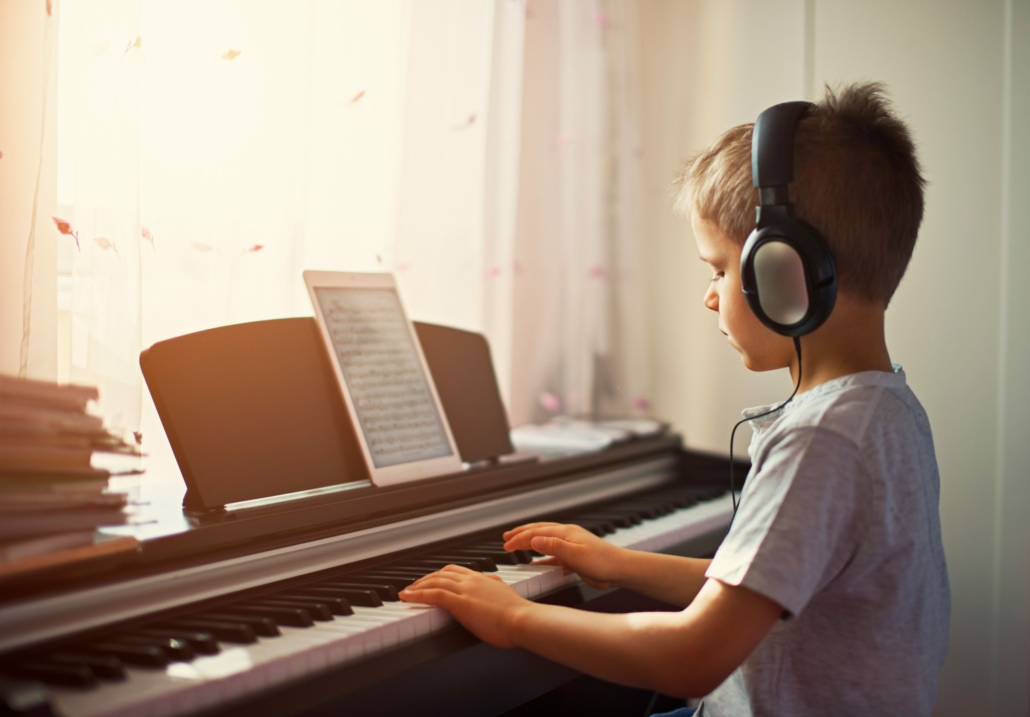
Encourage the development, effort, and progress of your child. When you recognize and applaud your child’s achievements, even the tiniest ones, it helps them acquire confidence and continue to strive harder.
#08 – Choose songs that are fun and appropriate for children.
Select tunes your child enjoys to keep their piano lessons interesting and enjoyable. Skilled piano instructors will incorporate entertaining tunes throughout their sessions to maintain your child’s interest. In case your child remains uninterested, talk with the teacher and come up with alternatives that align better with their individual interests. For instance, playing a song from your child’s favorite musical, TV program, video game, or film will help them see piano practice as a pleasurable activity.
#09 – Use assistive technology
Another useful strategy for making learning more engaging and captivating is to include technology into the piano study process. Try picking up the piano and using apps on your smart devices (tablets, phones, etc.).
Children may learn, play, and explore music with the Casio PX-S5000 digital piano, for instance, which has functions and programs that can be operated on a tablet. These include interactive lessons and games for music instruction.
If your youngster practices on a tablet or digital piano, you can videotape and record the session. After that, allow your child to hear the recordings so they can learn and grow by analyzing and comprehending what has to be improved.
#10 – Encourage children’s creativity
When your child is starting to play the piano, you should allow them to freely explore in order to foster both their technical and creative development. Encouraging them to try solo accompaniment or self-composed short pieces is an excellent method to accomplish this.
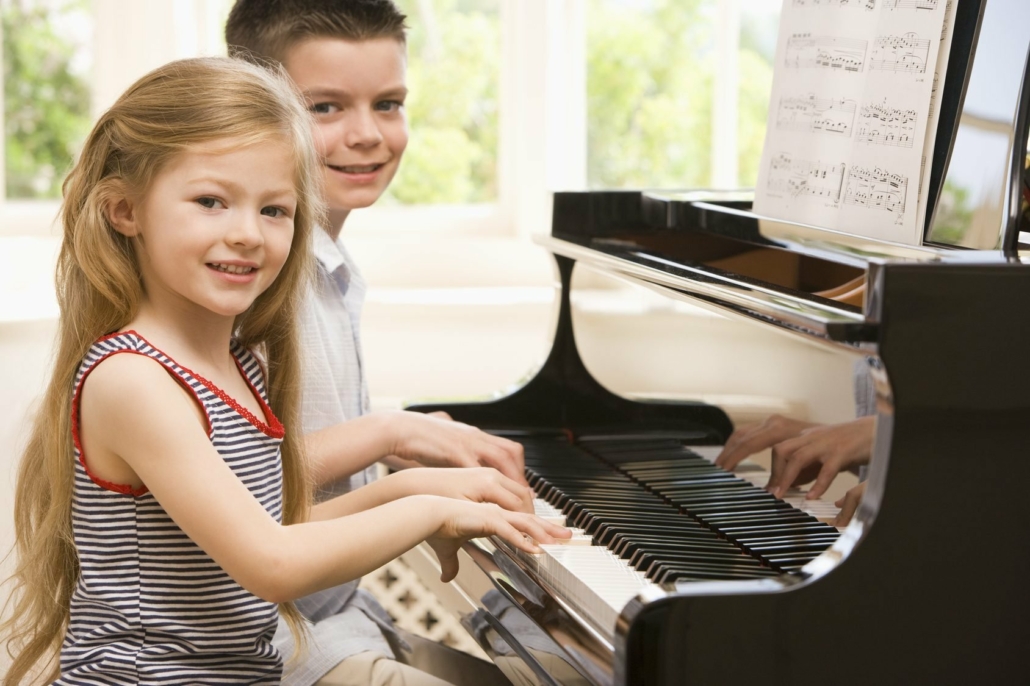
If your child seems to be enjoying this, consider designating one day each week for them to work on their creative side rather than their regular piano practice. This revitalizes the learning process and fosters the growth of your child’s imagination and critical thinking.
#11 – Be a role model for your kids
You may provide an excellent role model for your child by making time each week to play your favorite piano pieces, which will encourage them to pick up the instrument as well. Make it a family affair by asking your kids to join in on the dancing or just sit and listen to the music.
Your children may be inspired to attempt playing the piano just by hearing you play it in your home. They will experience the joy that music brings and want to partake in it when they witness you appreciating and being passionate about it.
#12 – Be patient and ready to support your kids when needed.
It is crucial to remember that your child will progress slowly and that each child will learn at their own rate. Have patience and make yourself accessible to help and motivate your youngster.
Throughout the learning process, patience not only keeps you in a good mood but also gives your child a sense of security and affection.
#13 – Identify the types of music that your child is most interested in
This is something you must begin doing as soon as your child is conceived. Parents are the ones who direct their children toward modern or classical music. The best method to help your child develop their skill is to expose them to music early on and let them listen to it. Kids will be exposed to a variety of musical genres, including blues, jazz, and modern jazz. Your youngster will become more interested in the piano if they are routinely exposed to it and are given the freedom to explore their interests.
#14 – Hire a trusted piano teacher to teach your child.
For new students, especially younger ones, private classes are a priceless resource. You should engage a competent teacher to teach your child piano even if you are a proficient player because they have superior pedagogical skills and a better way of working with novices. Though it is difficult to try as hard if the teacher is also their parent, students may still make an effort to fulfill the criteria established by their teacher.
#15 – Creating an ideal environment for your child to learn the piano
The environment has a big impact on how motivated your child is to learn. Your youngster can only focus on learning the piano when they are in a comfortable and peaceful environment. A perfect learning environment also encourages children to be more imaginative and creative when they play the piano.
For their child to study the piano, parents should set up a separate area, ideally their bedroom. Limit the amount of time your child spends watching TV or using loud electronics to prevent distracting them while they are learning the piano.
Bottom Line
To put it briefly, you should have a comprehensive, long-term perspective rather than viewing each piano practice session as a success or failure. Your child will have a better time practicing the piano if you make it fun and positive for them. This will foster a lifelong love of music.
For kids, picking up the piano may be a fun and fulfilling endeavor. By implementing the aforementioned advice and receiving the appropriate parental support and encouragement, kids can not only improve their musical abilities but also pick up many other important life lessons.
Hopefully the “15 ways to motivate teens to practice the piano” article will help you have some ideas motivating your kids to play pianos. Do not hesitate to leave a comment, we are here to support.
Copy by : pianosintheparks.com

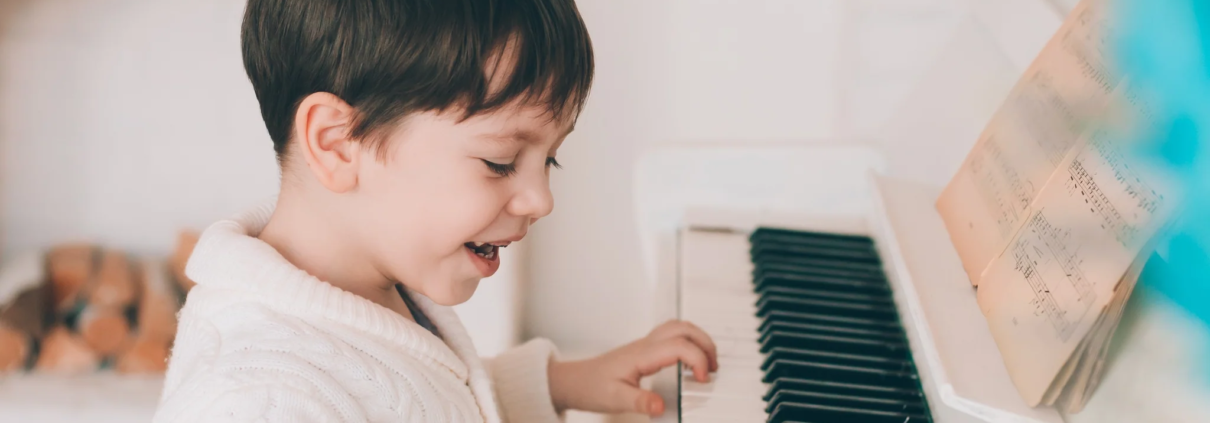


Leave a Reply
Want to join the discussion?Feel free to contribute!